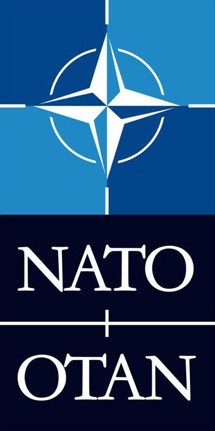Canada is spending billions and sacrificing the lives of many brave soldiers to shore up the NATO Alliance, which we are told has recently enjoyed a “major success” at its summit in Lisbon. We Canadians should be asking ourselves, however, if the North Atlantic Treaty Organization can survive even 15 years.
We have been told many things about NATO that, as the old song says, ain’t necessarily so.
The alliance, of course, was established in 1949 to challenge the Soviet-dominated Warsaw Pact, which wasn’t set up until 1955. It went back to its tradition of operating without its presumed raison d’etre after 1991, when the Warsaw Pact disappeared in the chaos that marked the end of the Soviet Union.
Today, soldiers from some members of this supposed mutual self-defence pact are fighting to suppress a bloody insurgency in Afghanistan, which no matter what you have been told offers no threat whatsoever to any of the North American and European states of NATO.
Also, no matter what you have been told, that fight is not progressing well — nor can it as long as Afghanistan’s largest ethnic group and its militarily muscular and nuclear-armed neighbour, which NATO does not dare to challenge, do not support the Afghan government that NATO (or the United States, at any rate) is determined to prop up.
Determining to continue a sure-fire failure hardly seems the best way to revitalize a shaky operation, yet that seems to have been the principal outcome of the Lisbon summit that our prime minister so recently assured us was a huge success. Again, no matter what you have been told, all the countries of NATO are not equally committed fighting to the insurgency in Afghanistan. Indeed, this lack of unanimity about the Afghan war is one of the main fissures developing in that alliance.
NATO’s problem in 2010 is not unlike that of the Holy Roman Empire in the 1500s. Seemingly powerful, seemingly everywhere, few really believe in the theoretical justification for its existence or owe it their allegiance.
Indeed, one could argue that, rather like the Holy Roman Empire, independent-minded Europeans with more appetizing commercial fish to fry than a pointless fight in the Hindu Kush will be the death of the alliance.
Of course, NATO faces other challenges too. Supposedly a mutual self-defence pact against potential Soviet aggression, it was arguably a way for the American imperium to keep its thumb on Western Europe. As America’s power fades along with its crumbling currency, Europe’s princlings — or whatever they are called nowadays — will look to their own survival and success. The Eurozone will remain, of course, committed to fighting in Afghanistan to the last drop of Canadian blood.
Key fissures in NATO include:
– Old members’ discomfort with new members. Even as an American-run club, NATO made sense with Warsaw Pact tanks just across the Iron Curtain. But, seriously, would the United States go to war to defend its Turkish NATO ally if another Turkish ship were attacked by Israel, which is not a NATO member? Would Germany risk nuclear annihilation at the hands of Russia to defend Ukraine or Georgia, both of which would like to join the NATO club?
— Economic strains. Will Europe — with economic problems of its own — continue to knuckle under for the Americans as the U.S. economy weakens and the U.S. dollar ceases to be the world’s reserve currency? Indeed, making the Euro the planetary reserve currency may be the only way to shore up the Eurozone if the economic troubles of countries like Greece and Ireland continue.
— Internal rivalries. Would the Americans tolerate the development of a single European army at the core of NATO that could someday challenge U.S. hegemony? Without NATO, they may not have the choice — a situation that may soon suit the Europeans.
— The irrelevance of Afghanistan. Even NATO’s adventure in the Balkans had some meaning for European powers. Afghanistan is an American imperial fight about which European taxpayers could give a fig. How long can NATO survive if, other than the Americans, only suckers like Canada and Britain make a significant contribution? These days, even the Brits look likely to pull the plug.
All these facts suggest that like the Holy Roman Empire, only without an animating force like Charles V, NATO will soon be a pointless and powerless entity, mighty in theory but surviving in name only.
In time, quite possibly less than you may imagine, even that is likely to fade away. This may take more than 15 years, of course, as the Soviet Union lingered 21 years longer than Andrei Amalrik predicted when he foretold its demise in 1970.
But as far as Canadians are concerned, if NATO long survives as anything, it will likely in reality be as the North American Territorial Organization.
This post also appears on David Climenhaga’s blog, Alberta Diary.



